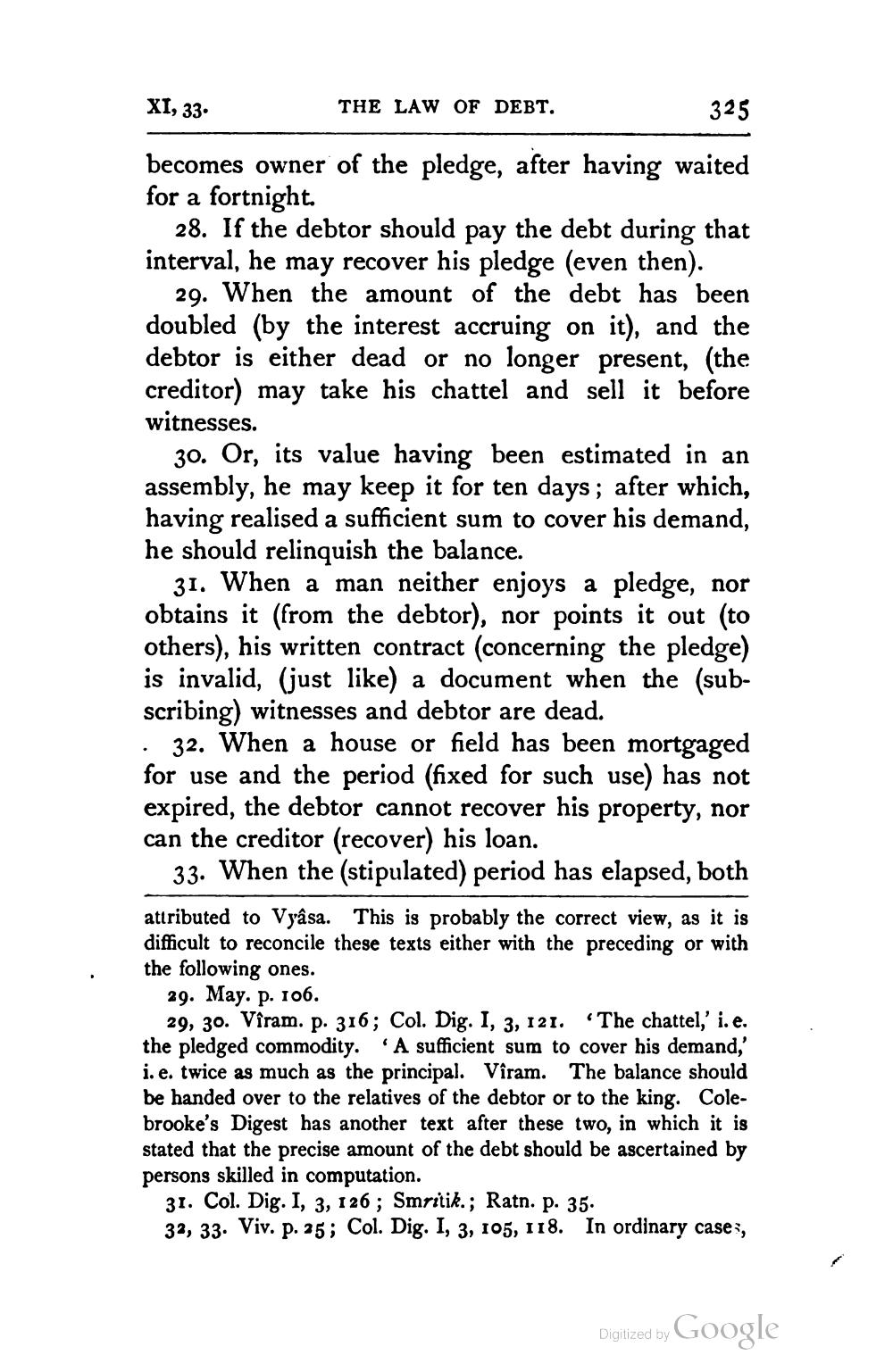________________
XI, 33.
THE LAW OF DEBT.
325
becomes owner of the pledge, after having waited for a fortnight.
28. If the debtor should pay the debt during that interval, he may recover his pledge (even then).
29. When the amount of the debt has been doubled (by the interest accruing on it), and the debtor is either dead or no longer present, (the creditor) may take his chattel and sell it before witnesses.
30. Or, its value having been estimated in an assembly, he may keep it for ten days; after which, having realised a sufficient sum to cover his demand, he should relinquish the balance.
31. When a man neither enjoys a pledge, nor obtains it (from the debtor), nor points it out (to others), his written contract (concerning the pledge) is invalid, (just like) a document when the (subscribing) witnesses and debtor are dead. . 32. When a house or field has been mortgaged for use and the period (fixed for such use) has not expired, the debtor cannot recover his property, nor can the creditor (recover) his loan.
33. When the (stipulated) period has elapsed, both attributed to Vyâsa. This is probably the correct view, as it is difficult to reconcile these texts either with the preceding or with the following ones.
29. May. p. 106.
20. 20. Viram. p. 216: Col. Dig. I, 3, 121. The chattel,' i.e. the pledged commodity. A sufficient sum to cover his demand,' i.e. twice as much as the principal. Vîram. The balance should be handed over to the relatives of the debtor or to the king. Colebrooke's Digest has another text after these two, in which it is stated that the precise amount of the debt should be ascertained by persons skilled in computation.
31. Col. Dig. I, 3, 126; Smritik.; Ratn. p. 35. 32, 33. Viv. p. 25; Col. Dig. 1, 3, 105, 118. In ordinary cases,
Digitized by Google




